Bodybuilding and plant-based diet: new scientific study and personal opinion - Bodybuilding e dieta vegetale: nuovo studio scientifico e opinione personale
Hello everyone and thanks for being here to read my new post! Today I’m talking about the vegetable diet and sports activity. The information reported were taken from reliable sources of which you can find the links at the end of the post.
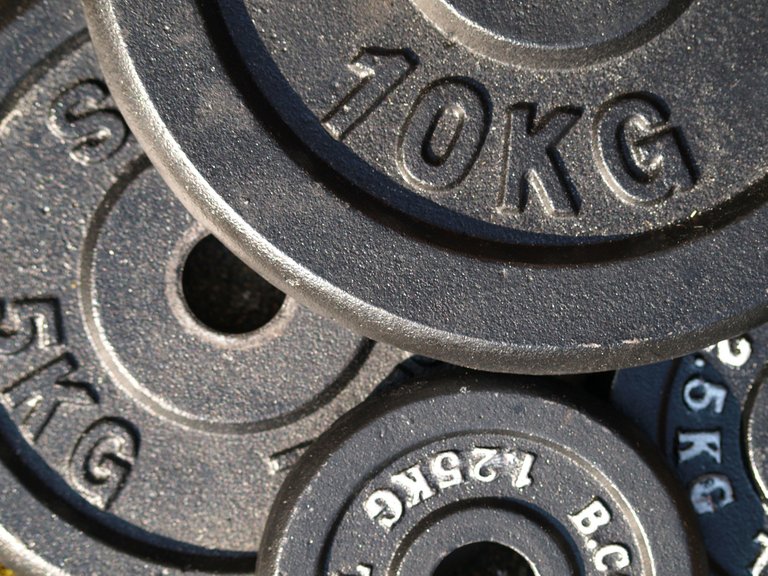
Photo by ariesa66 from Pixabay
Introduction
As some already know, I follow a plant-based diet and this often raises a lot of questions from people who know me. First of all, the famous question: "And where do you get your protein from?", But also "Is it good for your health?", "Is it compatible with sports activity?", ...
These are more than legitimate questions, as in common opinion the proteins of meat and fish are the only ones that offer energy and strength to "build muscles". This is, however, an ancient concept that has been disproved by numerous scientific studies and by the personal experience of numerous vegan and vegetarian athletes. Just to give some examples:
- Dave Scott (Ironman);
- Carl Lewis (Long jump);
- Walter Kowalski (Wrestling);
- Martina Navratilova (Tennis);
- Andreas Cahling (Bodybuilding);
- Venus Williams (Tennis);
- Korin Sutton (Bodybuilding);
- And many others.
From a first glance, it seems, therefore, that the plant-based diet is 100% compatible with sporting activity, both competitive and amateur. Obviously, it will be necessary to organize the food plan carefully to avoid deficiencies, but this is a job that is also done in the case of an omnivorous diet to ensure maximum performance without health risks.
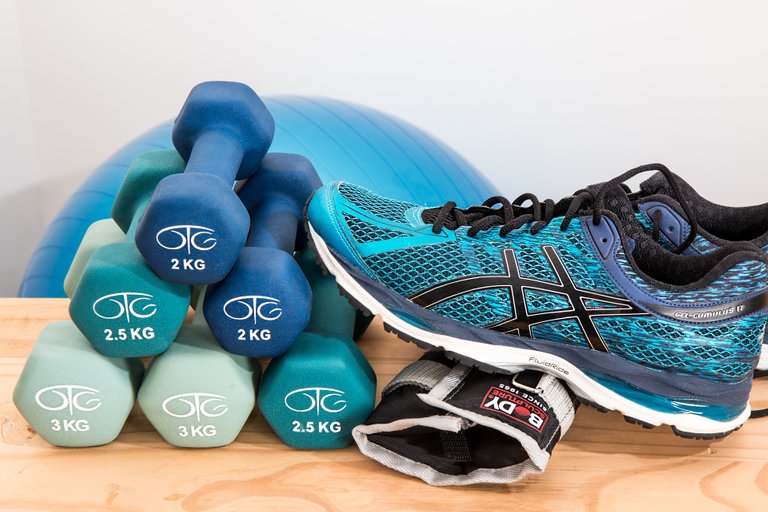
Photo by Steve Buissinne from Pixabay
Precautions to be taken
Here are the main issues that need to be taken into account:
- As for proteins, vegetable proteins have a slightly lower digestibility than animals, so it is recommended to increase their daily intake depending on the type of activity that takes place. For 100 g, the foods that contain the most are: Chickpeas (19 g), beans (12 g), broad beans (20 g), soy (37 g), peas (22 g), lentils (23 g), seaweed spirulina (16 g), pine nuts (31 g), almonds (22 g), pistachios (18 g), vegetables such as spinach, artichoke cabbage, asparagus, potatoes (in variable quantities depending on the crop and the season), vegetable drinks, seeds, cereals ... To solve the problem of bioavailability, it is very useful to make functional associations typical of Mediterranean cuisine: pasta and beans, rice and peas, ... In this way, it is possible to complete the amino acid spectrum of the food: for example, legumes have Methionine but not Lysine, while cereals contain Lysine, Threonine and Tryptophan, so taking them together completes the protein supply;
- It is important to pay attention to vitamin B12 deficiency, as it is a scarcely present vitamin in the vegetal kingdom. This deficiency, however, is much easier to fix than you think and is often not a problem of plant-based diets alone. For this reason, anyone would be advised to introduce B12-fortified foods into their diet, the recommended daily intake of which is only 2-2.5 micrograms!
- The correct intake of Omega-3 and Omega-6, abundantly present in fish, is also provided by many vegetables such as walnuts, linseeds, soybeans, sunflowers and avocados;
- Minerals such as calcium, iron and zinc are found in green leafy vegetables such as spinach, chard, beetroot, legumes and fruit.
Thus, as the study [1] concludes: "Well-planned vegetarian diets that include a wide variety of plant foods and a reliable source of vitamin B12 provide an adequate supply of nutrients."
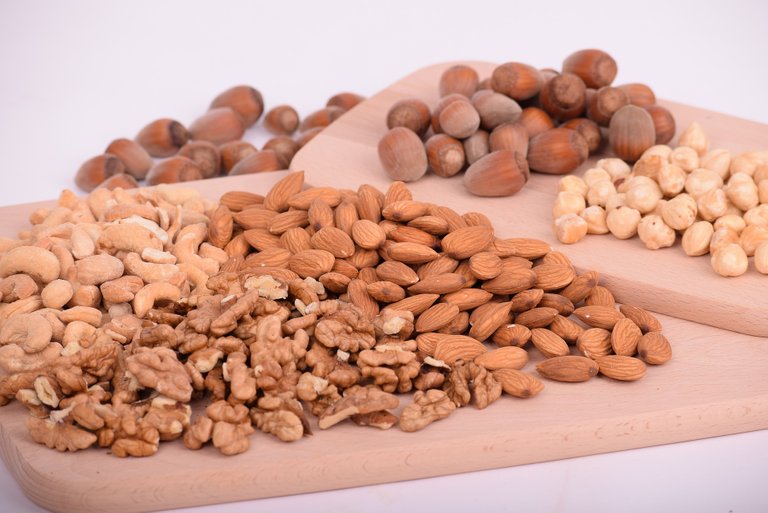
Photo by ExplorerBob from Pixabay
Study on vegetable diet and bodybuilding
I decided to write this post because a recent article [2] caught my attention. This is a study published in a peer-reviewed scientific journal that sought to understand whether a planned plant-based diet was comparable to an omnivore in terms of athletic performance.
To carry out this study, they formed two groups of athletes: the first made up of 19 vegan males and the second made up of 19 omnivorous males. Both groups trained on a weights program for three months and ate a daily intake of 1.6g of protein per body weight. This is a high amount of protein suitable for a type of sporting activity such as bodybuilding, certainly not for a sedentary lifestyle (remember that too much protein can be dangerous!).
At the end of the 3 months, both groups had gained comparable muscle and strength!
Quoting textual words: "An exclusively plant-based high protein diet (whole plant-based foods + supplement of isolated soy proteins) is no different from a mixed protein diet (mixed whole foods + whey protein) in the support muscle strength and mass accrual, suggesting that the protein source does not affect the adaptations induced by resistance training in untrained young men who consume adequate amounts of protein”.
What can we conclude from this study? A very simple thing, or that our body does not care what the primary source of nutrients is, the important thing is that the overall intake is balanced and that there is the right composition of micro and macronutrients capable of providing the energy we need.
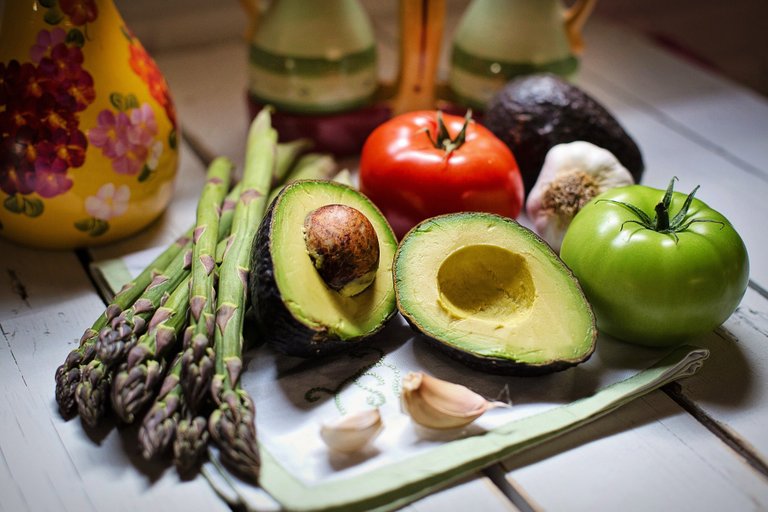
Photo by Jill Wellington from Pixabay
Personal opinion
I was very happy to study this scientific article as I think it is important to be able to sensitize people to the fact that the only protein source is not the animal kingdom.
I have many friends who work in the field or practice this sport and abuse meat and derivatives as if there is no tomorrow, and I am quite worried about their health.
Personally, I believe that it is not necessary to make a radical change by switching to a 100% vegetable diet, it would be enough just to introduce, in 2/3 meals a week, a vegetable rather than animal protein source. It would be a great improvement for themselves, for the animals and also for the planet where we live. "A little change for you, but a big change for the world".
This post is not to be considered as medical or nutritional advice, it is always good to consult your doctor or nutritionist in order to better plan a diet, be it omnivorous or vegetable, based on your lifestyle.
Thanks for reading this far. Let me know what you think!
See you soon,
Delilha
ITA
Ciao a tutti e grazie per essere qui a leggere il mio nuovo post! Oggi vi parlo di dieta vegetale e attività sportiva. Le informazioni riportate sono tratte da fonti autorevoli di cui potete trovare i link per gli approfondimenti alla fine del post.
Introduzione
Come alcuni già sanno, io seguo una dieta a base vegetale e questo suscita spesso molte domande da parte delle persone che mi conoscono. Innanzitutto, la famosa frase: “Da dove prendi le proteine?”, ma anche “Fa bene alla salute?”, “E’ compatibile con l’attività sportiva?”, …
Si tratta di domande più che lecite, in quanto nell’opinione comune le proteine della carne e del pesce sono le uniche che offrono energia e forza per “costruire i muscoli”. Questa è, però, una concezione antica che è stata smentita da numerosi studi scientifici e dall’esperienza personale di numerosi atleti vegani e vegetariani. Giusto per fare qualche esempio:
- Dave Scott (Triathlon, Ironman);
- Carl Lewis (Salto in lungo);
- Walter Kowalski (Wrestling);
- Martina Navratilova (Tennis);
- Andreas Cahling (Bodybuilding);
- Venus Williams (Tennis);
- Korin Sutton (Bodybuilding);
- E molti altri.
Da una prima occhiata, sembra, quindi, che la dieta a base vegetale sia compatibile al 100% con l’attività sportiva, sia agonista che amatoriale. Ovviamente, sarà necessario organizzare con criterio il piano alimentare per evitare carenze, ma questo è un lavoro che viene fatto anche in caso di dieta onnivora per garantire il massimo delle performance senza rischi per la salute.

Foto di Steve Buissinne da Pixabay
Accortezze da adottare
Ecco le principali questioni di cui bisogna tener conto:
- Per quanto riguarda le proteine, quelle vegetali hanno una digeribilità leggermente inferiore rispetto alle animali, dunque è consigliato aumentarne l’introito giornaliero a seconda del tipo di attività che si svolge. Per 100 g, gli alimenti che ne contengono di più sono: Ceci (19 g), fagioli (12 g), fave (20 g), soia (37 g), piselli (22 g), lenticchie (23 g), alga spirulina (16 g), pinoli (31 g), mandorle (22 g), pistacchi (18 g), ortaggi come spinaci, cavoli carciofi, asparagi, patate (in quantità variabile a seconda della coltivazione e della stagione), bevande a base vegetale, semi, cereali… Per risolvere il problema della biodisponibilità, è molto utile fare delle associazioni funzionali tipiche della cucina mediterranea: pasta e fagioli, riso e piselli, … In questo modo, si riesce a completare lo spettro amminoacidico dell’alimento: ad esempio, i legumi possiedono Metionina ma non Lisina, mentre i cereali contengono Lisina, Treonina e Triptofano, quindi assumendoli insieme si va a completare l’apporto proteico;
- È importante fare attenzione alla carenza di vitamina B12, in quanto si tratta di una vitamina scarsamente presente nel regno vegetale. Questa carenza, tuttavia, è molto più facile da risolvere di quanto si pensi e, spesso, non è un problema solamente delle diete a base vegetale. Per questo motivo sarebbe consigliato a chiunque di introdurre nella propria dieta cibi fortificati con B12, il cui apporto giornaliero raccomandato è solo 2-2,5 microgrammi!
- Il corretto apporto di Omega-3 ed Omega-6, abbondantemente presenti nel pesce, è fornito anche da molti vegetali come noci, semi di lino, soia, girasole e avocado;
- Minerali come calcio, ferro e zinco si trovano in verdure a foglia verde come spinaci, bietola, barbabietola, in legumi e frutta.
Quindi, come conclude lo studio [1]: “Diete vegetariane ben pianificate che includono un'ampia varietà di alimenti vegetali e una fonte affidabile di vitamina B12 forniscono un adeguato apporto di sostanze nutritive”.

Foto di ExplorerBob da Pixabay
Studio su dieta vegetale e bodybuilding
Ho deciso di scrivere questo post perché un recente articolo [2] ha attirato la mia attenzione. Si tratta di uno studio pubblicato su una rivista scientifica di peer review che ha cercato di comprendere se una dieta vegetale pianificata fosse comparabile a una onnivora per quanto riguarda le prestazioni atletiche.
Per svolgere questo studio, hanno formato due gruppi di atleti: il primo composto da 19 maschi vegani e il secondo da 19 maschi onnivori. Entrambi i gruppi sono stati allenati con un programma di pesi per tre mesi e hanno assunto un apporto giornaliero di 1,6 g di proteine per peso corporeo. Si tratta di un’elevata quantità di proteine adatta a un tipo di attività sportiva come il bodybuilding, non di certo a una vita sedentaria (ricordo che anche troppe proteine possono essere dannose!).
Al termine dei 3 mesi, entrambi i gruppi avevano guadagnato muscoli e forza in maniera comparabile!
Citando testuali parole: “Una dieta ad alto contenuto proteico esclusivamente a base vegetale (alimenti integrali a base vegetale + integrazione di proteine di soia isolate) non è diversa da una dieta mista di proteine (cibi integrali misti + proteine del siero di latte) nel sostenere la forza muscolare e l'accumulo di massa, suggerendo che la fonte di proteine non influisce sugli adattamenti indotti dall'allenamento di resistenza in giovani uomini non allenati che consumano quantità adeguate di proteine”.
Cosa possiamo concludere da questo studio? Una cosa molto semplice, ovvero che il nostro organismo non si cura di quale sia la fonte primaria dei nutrienti, l’importante è che l’introito complessivo sia bilanciato e che vi sia la giusta composizione di micro e macronutrienti in grado di fornire l’energia di cui abbiamo bisogno.

Foto di Jill Wellington da Pixabay
Opinione personale
Sono stata molto contenta di studiare questo articolo scientifico in quanto penso sia importante riuscire a sensibilizzare le persone sul fatto che l’unica fonte proteica non è costituita dal regno animale.
Ho molti amici che lavorano nell’ambito o praticano questa attività sportiva e fanno abuso di carne e derivati come se non ci fosse un domani, e sono abbastanza preoccupata per la loro salute.
Personalmente, ritengo che non sia necessario fare un cambiamento radicale passando a una dieta 100% vegetale, basterebbe anche solo introdurre, in 2/3 pasti a settimana, una fonte proteica vegetale anziché animale. Sarebbe un grande miglioramento per sé stessi, per gli animali e anche per il pianeta dove viviamo. “Un piccolo cambiamento per te, ma un grande cambiamento per il mondo”.
Questo post non è da considerare come un consiglio medico o nutrizionale, è sempre bene consultare il proprio medico o nutrizionista per poter pianificare al meglio una dieta, sia essa onnivora o vegetale, in base al proprio stile di vita.
Grazie per aver letto fino a qui. Fatemi sapere cosa ne pensate!
A presto,
Delilha
Sources – Fonti:
[1] Position paper on vegetarian diets from the working group of the Italian Society of Human Nutrition - C. Agnoli et al.
[2] High-Protein Plant-Based Diet Versus a Protein-Matched Omnivorous Diet to Support Resistance Training Adaptations: A Comparison Between Habitual Vegans and Omnivores - V. Hevia-Larraín et al.
Fondazione Veronesi
Repubblica
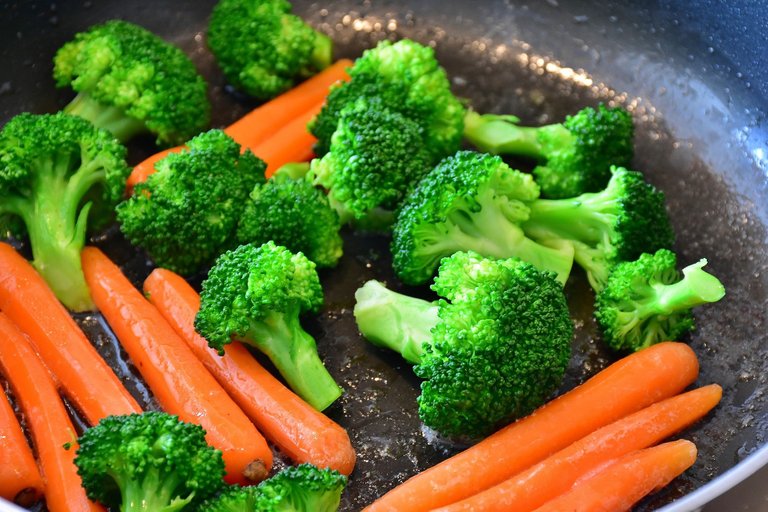
My favorite part of your post are the photos of nuts. I love eating nuts.
Thank you very much :) I love eating nuts!
And thanks for the reblog! Have a nice day
https://twitter.com/delilhavores/status/1370311729683521540
Very Sorry My Account Was Hacked..
For anyone reading, please check @lesmann's account. He says this is a scam. Don't click on the link, his account was hacked. I'm trying to help get the word out and keep other people from getting scammed.
Oh I'm sorry for downvoting 🙈 I didn't know his account was hacked. I hope you can solve it soon
@tipu curate
Upvoted 👌 (Mana: 65/78) Liquid rewards.
Grazie mille per il supporto 😊 buona giornata
Hai ragione, una dieta vegetale farebbe bene a tutti noi perché mangiamo troppa carne, troppo zucchero, pane e pasta, e beviamo troppo latte.
Poi chiaramente dipende sempre dal corpo della persona stessa, visto che ognuno é diverso....
Secondo me un punto importante é il vero BIO, cioé cercare di comprare verdure da persone che coltivano per se stesse, o se abbiamo la possibilitá di coltivarle noi.
Saremmo sicuramente piú equilibrati in tutti i sensi 🤗
Anche senza passare da un estremo all'altro, ma semplicemente introducendo piccoli cambiamenti o qualche piatto più salutare, sono sicura che si vedrebbero subito i benefici 😊
Riguardo al bio cerco di fare del mio meglio, non è sempre facile attenersi a un menu di stagione, ma è la cosa migliore perché si mangiano cose più buone e meno costose 😊
Grazie mille per il commento e per il supporto, ti auguro una buona giornata!
Grazie mille, a te buon weekend 🤗
Congratulations @delilhavores! You have completed the following achievement on the Hive blockchain and have been rewarded with new badge(s) :
Your next target is to reach 40000 upvotes.
You can view your badges on your board and compare yourself to others in the Ranking
If you no longer want to receive notifications, reply to this comment with the word
STOPThanks! Let's do it :)
You're welcome @delilhavores, that's well deserved! Happy weekend 😊🌹
When I see gym 🏋🚴💪 product I am excited I like this post
Thank you very much for your comment !🏄♀️🏋️♀️🚴♀️
!discovery 40
Grazie mille per il supportone :) :)
This post was shared and voted inside the discord by the curators team of discovery-it
Join our community! hive-193212
Discovery-it is also a Witness, vote for us here
Delegate to us for passive income. Check our 80% fee-back Program
Questo post merita una doppia lettura... intanto faccio un reblog
Hey grazie mille Stefano :) :)
Yes, it's true a vegan diet may require more planning, protein and diversity, but the results can be just as good as an omnivore diet, and in many cases better depending on the individual. As I'm not an extreme athlete, I've never pushed the limits of what my diet can provide me with, but I've always felt balanced on a #plantbased diet.
@NaturalMedicine supports wellness of body, mind, soul and earth on HIVE.
Come say hi via Lotus Chat or drop by our Hive Community - we'd love to have you!
Yes, I totally agree with you :) I'm happy to find out that science supports this lifestyle! It's important to make people know about the real facts and studies. Thanks for your comment :)